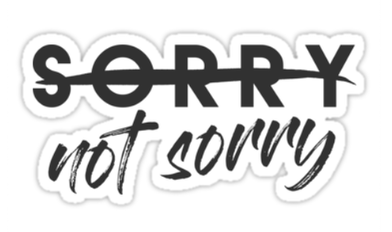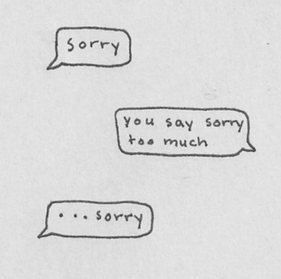|
“Everything You Want is on the Other Side of Fear.” – Jack Canfield As a Coach, I absolutely love working with clients around their fears. Why? Because I know that their fears and discomfort are the gateway to their growth and success.
You see, fear stops us from becoming who we are truly meant to be in this world and from sharing our individual gifts and creativity with others. Fear holds us back and stops us from living the life we truly desire to live. Now, I am not talking about the kind of fear we experience when being held up by gunpoint or in a life-threatening situation. I am referring to the tendrils of fears that grip our gut and squeeze our chest when we think of going after a goal or desire, want to speak our truth to someone, or to share a new idea out loud. These sensations arise hand in hand with whispers of “you can’t do that, you will fail, or you don’t know enough” and, of course, my all time favorites “what will people think?” and “everyone will know you are a fake, an imposter.” These fears of what we imagine others will think or what we imagine will happen become self-sabotaging stories that we tell ourselves. These stories rob us of our power. They fill us with doubt, steal our self-worth, and can become self-fulfilling prophecies over time. Within them, we stay trapped and unable to step out of our comfort zone, unable to take new actions towards our true power and potential. Within them, we stay the same. You see, in order to change the results we are getting in life, in order to truly achieve the growth and success we desire, we must change the stories we tell ourselves. The first step is to become aware of them, and understand their purpose in keeping us safe and playing small. We then can practice leaning into, instead of away from, the doubts and fears they produce. We can start to see these fears as something we should navigate towards, not away from. When we practice this, we learn to move through our fears instead of being stopped by them. They become smaller, their grip in our body loosens, and we find ourselves growing and achieving. We find ourselves free of self-doubt and low self-worth. Success that seemed impossible becomes possible. When a client can speak to their fears and are ready and eager to act, to keep moving forward in spite of them, then I know we are on to something really exciting! What fears are keeping you from your dreams and desires? What opportunities would you create for yourself by facing your fears? I’d love to hear! -Coach Augusta Fear can show itself in different forms and in different situations in life. At this moment in life I am a father of 3 children in the age range 8-11 years old. They go to school, do all kinds of activities after school and a lot of sports.
The moment I became a parent I was reintroduced to fear. During the time my children growing up there were and are situations that have me feared something bad might happen. It started with their first steps, fearing that they might bump into the corner of a table. Then they started riding a bike and after getting the training wheels off there was the fear of them falling of the bike on the pavement. Currently the oldest and the middle one are totally into mountain biking and the things they do is amazing. I experienced this during biking with them on trails. I feared falling and then it happened once taking a corner. It made me aware of two things. Firstly, sometimes it is better for my mental health when I am not aware of what my kids are doing outside. Out of sight, out of mind. Secondly, I did something completely new to me and after some time into mountain biking, I loved it, being outdoors and spending quality time with my children. I went from fear to joy in half an hour. ‘Just do it’ proved itself for me again. Going through your fear might be tough and may take a while and the reward is magnificent. Besides being a father and having other roles in life I know fear as a (career) coach as well. In this case it shows itself as the fear of not getting the results client would like to get immediately, the fear of not getting the next client or the fear of talking too much instead of listening. Like the situation mentioned above I might face fear before I step into a coaching session and then coaching and going with the flow gets me to the other side. The side where I ask my client for feedback on our session and I hear things that did not come up in my picture of fear. Again, ‘Just do it’ is so right. Need help to ‘Just do it?’ Please consider setting up a 25-minute exploratory session with me. Let’s practice it together, Coach LJ Our October theme this month at FromWithin Coaching is FEAR…sure, it is a kitschy theme based on the fact that October is the “watch every scary movie every created in the next 30-days”, but as Coaches and Career Communications’ Specialists, we face FEAR everyday with our Clients. FEAR of not being enough, FEAR of not being good enough to get their dream job, FEAR of asking for a raise, FEAR of writing their resume, FEAR of LinkedIn, FEAR of spiders (ok, so that isn’t something we coach on, but come on, spiders are NOT very fun to look at…)
Because we face FEAR every day with our Clients, we remind them that FEAR has many different meanings and can have many different definitions than normally thought of when you look at FEAR as an acronym. Those acronyms include: False Evidence Appearing Real Face Everything And Rise For Everything A Reason Feeling Excited And Ready Face Everything And Recover False Expectations Appearing Real Failure Expected And Received Future Events Already Ruined Fighting Ego Against Reality False Emotions Appearing Real Forget Everything And Relax Forgetting Everything is All Right Frantic Effort to Avoid Reality What you see from this list is that FEAR is often what you make it. Or don’t make it. In doing research for this blog post, I came across Dr. Pamela D. Garcy’s article on her use of the The F-E-A-R System to help her clients work through their FEAR. The F-E-A-R System she uses stands for Focus, Expose, Approach, Rehearse. F = Focus instead of freaking out E = Expose instead of escape A = Approach instead of avoid R = Rehearse a lot What she is suggesting is lean into the FEAR because often, what we think is going to happen (or is happening) is FAR from what reality is. It would not be a proper blog post on FEAR for me to write if I didn’t include one of my favorite quotes/stories on FEAR that Elizabeth Gilbert, author of Eat, Pray, Love wrote in her book on writing, Big Magic: Creative Living Beyond Fear. “I even have a welcoming speech prepared for fear, which I deliver right before embarking upon any new project or big adventure. It goes something like this: “Dearest Fear: Creativity and I are about to go on a road trip together. I understand you’ll be joining us, because you always do. I acknowledge that you believe you have an important job to do in my life, and that you take your job seriously. Apparently, your job is to induce complete panic whenever I’m about to do anything interesting—and, may I say, you are superb at your job. So, by all means, keep doing your job, if you feel you must. But I will also be doing my job on this road trip, which is to work hard and stay focused. And Creativity will be doing its job, which is to remain stimulating and inspiring. There’s plenty of room in this vehicle for all of us, so make yourself at home, but understand this: Creativity and I are the only ones who will be making any decisions along the way. I recognize and respect that you are part of this family, and so I will never exclude you from our activities, but still—your suggestions will never be followed. You’re allowed to have a seat, and you’re allowed to have a voice, but you are not allowed to have a vote. You’re not allowed to touch the road maps; you’re not allowed to suggest detours; you’re not allowed to fiddle with the temperature. Dude, you’re not even allowed to touch the radio. But above all else, my dear old familiar friend, you are absolutely forbidden to drive.” I invite you today to respect the FEAR that arises today in your life…but don’t allow it to drive you. Not scared, Coach Amy  I’m sorry I’m late. I’m sorry I have been so needy lately. I’m sorry to ask for another favor. I’m sorry I made a mistake. I’m sorry I can’t make it tonight. I’m sorry I’ve been so emotional. And my favorite, “I am sorry for being in the way”, often said as you wander down the grocery store aisle. Why are we apologizing for walking down an aisle? Is it because we may be getting in the way of the person who is considering the box of Pho Xao or Pad Thai (what is the difference anyway?) and you might be blocking their view for the split second you walk between them and the boxed rice noodles? Or is it because you are unintentionally apologizing for “being”? Either way, I appreciate a bit of kindness…trust me, I am the first to extend a hand to someone, open a door, or give up my seat in a waiting room for someone in more need than me. But by saying “I am sorry” for something that I am really not sorry about, am I disempowering myself? Are we being too kind to others, taking away our own chance to be kind to ourselves? How many times do YOU think YOU say “I am sorry” in a day? Take a wild guess? According to a great new survey from Express.co.uk, they found that the average person apologizes approximately 2,920 times every year. That means, eight “I’m sorrys” every single day, that’s 56 apologizes every week and that’s somewhere around 250,000 apologies in a lifetime. There’s more. The survey also found that about one in eight people apologize at least 20 times a day. And, 43% of people admit that they regularly apologize when other people do something wrong to them like someone bumps you on the sidewalk and even though it clearly wasn’t your fault, you say “I’m sorry.” What are you really saying when you say “I’m sorry”? On the surface, “I’m sorry,” may sound like an apology, but I wonder if it may actually be disguising other feelings. For example, the person who apologizes routinely and reflexively when no real offense has occurred, because they believe that they have burdened someone, which is a feeling they have difficulty tolerating. Frequently heard examples of this are “I’m sorry, but I need to use your bathroom,” or, “Sorry, do you know what time it is?” Another example of “I’m sorry” may be used to give the apologizing person permission to say or do something that he or she believes might be objectionable to another, but to be able to do it anyway. Somehow, it seems, saying “I’m sorry” softens the blow or reduces the likelihood of consequences. But for me, what it seems to do is “lessen” our actions…common actions that don’t actually need “Sorry” as the start of the sentence. How much of an objection is to ask someone the time? I mean, really? The time? It is not like you are saying, “I’m sorry, although I would like to know the time, can you actually give me your Shinola watch?” But you aren’t asking for their watch…you are asking for the time. Time is free. Their Shinola watch is not. So why are you sorry for asking for something simple like the time? As a Coach, I hear “sorry” more than I hear any other word from my clients. I am hyper vigilant when it comes to that word, because I truly believe it gives me a sense of what my Client’s self-esteem is like. The more often, the less self-esteem. And I wonder how that shows up in their professional work during work meetings, during interviews, or during conversations with their managers. By saying “sorry” when they have nothing to actually be sorry about, is it annoying as well? Annoying or not, I am a firm believer that it is doing harm to one’s confidence and ability to “own” who they are. Ultimately affecting their professionalism at work. Are we lessening the impact of future apologies? Another insight is that by “over sorry-ing”, we may actually be NOT be saying sorry when we really should or when we do, people don’t feel the impact of a “real sorry.” Is saying sorry like willpower where we only have so many and we run out, misusing our “sorrys” on things we don’t have to be sorry about? When we say “I’m sorry” all the time, when do those around us actually know when we are generally sorry for something? Is it a bit like the boy calling wolf? When you mean it, they might think it is you saying “I’m sorry” reactively again. And it lessens the actual apology. Sorry…I am not sorry. Demi Lovato can all teach us something – stop apologizing so much about things you didn’t do that you seem to think requires an apology! So, what can we say instead of sorry next time? How about: I’m sorry I’m late. Thank you for waiting on me. I’m sorry I have been so needy lately. Thank you for being there for me. I’m sorry to ask for another favor. Thank you for helping me out. I’m sorry I made a mistake. Thank you for pointing out my mistake. I’m sorry I can’t make it tonight. Thank you for inviting me. I’m sorry I’ve been so emotional. Thank you for loving me. I’m sorry for being in the way. Good luck choosing your dinner! I’d go with the Pad Thai. What does it take to stop “over sorry-ing”? Awareness. No need to say “sorry, I’m saying sorry…” every time you say sorry. Just be aware of what you are saying and that’s enough. And soon enough, what you really want to say will start to come more naturally than your “sorry” reflex. FYI – I said sorry 51 times in this blog post. Not sorry, AM |
AuthorThe authors of these blogs include incredible Coaches and Writers at FromWithin Coaching who are inspired to share their thoughts, ideas, comments, and possibilities with YOU, the reader. Archives
June 2025
Categories
All
|








 RSS Feed
RSS Feed